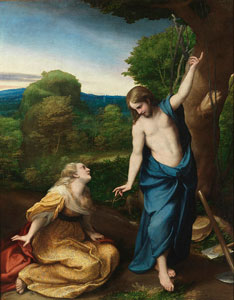
Exodus 12:1-4, 11-14; 1 Corinthians 11:23-26, John 13:1-17
Have you ever had a favorite song or piece of music get stuck in your head? You find yourself humming it or singing it, and you realize in odd moments that the melody and the words are running along in the background of your mind, accompanying you through the day, an unexpected gift.
At least for me, this music is not something I’ve heard only once, or even a few times, but music I’ve heard over and over. To hear the music singing in my soul is the result of my having listened to and even having sung that song many times.
The fact that I’ve heard the music and the words frequently causes that music to come to me when I want and need it, or to just start playing in my mind when I least expect it.
Those of you who play musical instruments know the importance of repetition and practice to make the music on the page a melody in your mind that you can remember, even under pressure.
In tonight’s Old Testament reading, God composes the background music of freedom for the Israelites when God tells Moses and Aaron to prepare for their escape from Egypt. God gives them specific directions about preparing a lamb for the last meal that they would share as slaves.
And then God tells Moses and Aaron that this day, these directions to Moses and Aaron are to become familiar music to the Israelites, the music of freedom that they are to remember, the music that they will practice over and over as a festival to the Lord, a perpetual ordinance throughout the generations.
And so, to this day, our Jewish brothers and sisters celebrate the Passover. They sing their freedom song every year. They observe the day as a perpetual ordinance. When they remember the Passover, they remember that God loves them and takes care of them and frees them.
In the New Testament, the Corinthians have gotten their music all mixed up. They are no longer singing together in harmony. In their arguing about how they should eat together, they’ve forgotten the reason that they are eating together. They’ve forgotten Jesus. Paul writes his first letter to them to help them remember Jesus.
Paul reminds them that Jesus took a loaf of bread, and when he had given thanks, he said, “This is my body that is for you. Do this in remembrance of me.” Jesus took the cup also, after supper, saying “This cup is the new covenant in my blood. Do this, as often as you drink it, in remembrance of me.”
And so, to this day, we Christians celebrate the Holy Eucharist, which is our freedom song. We remember that Jesus, through his death, resurrection, and ascension, brought us out the bondage of sin into righteousness, and out of prison of death into life.
We observe this meal around God’s table as a perpetual ordinance.
We practice, over and over, how to eat together at God’s table so that whenever we gather around our tables here in this world, we will find Jesus there with us too.
We practice, so that when we share our food, we remember that we share with others because Jesus shared himself with us. Without practice, we find ourselves clutching to ourselves what we have, instead of stretching out our hands in love.
“Do this in remembrance of me,” Jesus said, not just coming to this table for ourselves alone, but for the benefit of the whole world.
Many of our Catholic brothers and sisters go to mass every day, to remember every day what Jesus asks us to remember, “This is my body that is for you…” and then to go out and do as Jesus did—to let God break us open so that God’s love can pour out through us into the world.
In John’s gospel, Jesus washes the feet of the disciples that night when they’ve gathered around the table for the last time.
Jesus wants them to understand that he is welcoming them into his home, the home of his own Father, God. They are so welcome that God will stoop and wash their feet to welcome them in, and then will invite them to God’s own table, where God will serve them, where they will share in the heavenly banquet with all nations and tribes and people and languages, where the music is a song of unending joy and praise and love.
Once a year, on this night, we physically remember at the foot washing that we stand on the threshold of God’s house, that we bring our whole selves, our dusty, dirty, confused mixed up lives to God’s door. God is waiting.
As the invitation to the Eucharist in our Celtic Eucharistic prayer puts it, “Those who wish to serve him must first be served by him, those who want to follow him must first be fed by him, those who would wash his feet must first let him make them clean.”
Jesus set an example for us when he washed the feet of his disciples.
So we practice how to love one another tonight, as we wash one another’s feet. We remember how to welcome in and to love one another graciously and generously. The practice of foot washing becomes our perpetual ordinance of welcoming one another in love, as Jesus welcomes us.
Bread, wine, water, welcome—God weaves these strands of melodies together into our resurrection song, our song of praise and thanksgiving for God’s love for us.
When we practice this song, God’s welcoming love song for us will become the music that plays forever in our hearts, the unforgettable music that calls us to remember, the music that sings us through our days and shapes us into love.







